Each prize winner is matched with a distinguished mentor, who meets with the prize winner throughout their research year. Below are the Internet Research Initiative Mentors for the first three years of the project. Scroll below to read biographies of each mentor.
George Abe (2023-24)
 George Abe is adjunct assistant professor of entrepreneurship at the UCLA Anderson School of Management. In 1976 he joined Computer Sciences Corp (CSC). He designed the IP data service for CSC’s spinoff, Infonet Services Corporation, and later signed on as business development manager at Cisco, where he became the product manager for data over cable products. In 1997 Cisco published his book Residential Broadband, an early practical guide to what were then emerging access networks and internet technologies, published in two editions. After Cisco, he was a venture partner with Santa Monica-based Palomar Ventures and served on various corporate and non-profit boards. In 2002 he joined UCLA’s technology transfer office, as Business Development Manager. In 2003 he joined the faculty at Anderson.
George Abe is adjunct assistant professor of entrepreneurship at the UCLA Anderson School of Management. In 1976 he joined Computer Sciences Corp (CSC). He designed the IP data service for CSC’s spinoff, Infonet Services Corporation, and later signed on as business development manager at Cisco, where he became the product manager for data over cable products. In 1997 Cisco published his book Residential Broadband, an early practical guide to what were then emerging access networks and internet technologies, published in two editions. After Cisco, he was a venture partner with Santa Monica-based Palomar Ventures and served on various corporate and non-profit boards. In 2002 he joined UCLA’s technology transfer office, as Business Development Manager. In 2003 he joined the faculty at Anderson.
Jean-François Blanchette (2016-17)
 Jean-François Blanchette is an Associate Professor in the Department of Information Studies at UCLA. He has been researching issues relative to electronic authenticity, computerization of bureaucracies, and the evolution of the computing infrastructure for the past 15 years, including long-term ethnographic work in the French legal professions. He is the author of Burdens of Proof: Cryptographic Culture and Evidence Law in the Age of Electronic Documents (MIT Press, 2012) and co-editor of Regulating the Cloud: Policy for Computing Infrastructure (MIT Press, 2015).
Jean-François Blanchette is an Associate Professor in the Department of Information Studies at UCLA. He has been researching issues relative to electronic authenticity, computerization of bureaucracies, and the evolution of the computing infrastructure for the past 15 years, including long-term ethnographic work in the French legal professions. He is the author of Burdens of Proof: Cryptographic Culture and Evidence Law in the Age of Electronic Documents (MIT Press, 2012) and co-editor of Regulating the Cloud: Policy for Computing Infrastructure (MIT Press, 2015).
Jeff Burke (2018-22)
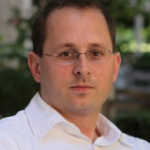
Jeff Burke is Professor In-Residence and Vice Chair, Graduate Studies, UCLA Dept. of Theater. He co-directs the UCLA Center for Research in Engineering, Media and Performance (REMAP), a joint effort of the UCLA School of Theater, Film and Television (TFT) and Samueli School of Engineering. From 2007-12, he was area lead for participatory urban sensing at the NSF Center for Embedded Networked Sensing, which helped define a new application arena for mobile devices. From 2014-2020, he served as Assistant and, later, Associate Dean for Technology and Innovation in TFT. He has been a co-PI and application team lead for the Named Data Networking project, a multi-campus effort to develop a data-centric future Internet architecture, most recently supported through a joint Intel/NSF award for research on advanced platforms for augmented reality (AR). Currently, he and REMAP are working on two AR and immersive theater projects at UCLA, including a student-written piece set in the world of Amazon Studios’ The Man in the High Castle and supported by Epic Games.
Lillian Coral (2017-22)
 Lilian Coral joined Knight Foundation in September 2017.
Lilian Coral joined Knight Foundation in September 2017.
Coral is Knight Foundation’s director of national strategy + technology innovation, where she manages the national portfolio and focuses on the development of the foundation’s citizen-centered Smart Cities strategy. The portfolio’s investments include a focus on data accessibility and trust, urban mobility, and technology in public spaces. Coral came to Knight from the City of Los Angeles, where she served as chief data officer for Mayor Eric Garcetti. In this role, she led the mayor’s directive on open data beyond the lens of transparency and towards his vision of a data-driven Los Angeles. She managed the growth of Los Angeles’ open data program to 1,100 public datasets, the expansion of the use of data science and analytics, and the development of more than 15 user-centered digital services. Of note, was her development of the GeoHub, a first-of-its kind data management solution for integrating geospatial information across the City of Los Angeles’ 41 departments.
Prior to joining Mayor Garcetti, Coral spent 15 years working on a wide range of policy and technology issues and has experience working with labor unions, NGOs, foundations and local, state and federal government to transform the way government uses data and technology to serve its citizens.
Coral has a bachelor’s degree in international studies from the University of California, Irvine and a master’s degree in public policy from the University of California, Los Angeles. She is a native of Colombia, a place from where much of her inspiration for innovation and social justice emerged.
Johanna Drucker (2016-2018)
Johanna Drucke r is the inaugural Martin and Bernard Breslauer Professor of Bibliographical Studies in the Department of Information Studies at UCLA. She has published and lectured widely on topics related to digital humanities and aesthetics, visual forms of knowledge production, book history and future designs, graphic design, historiography of the alphabet and writing, and contemporary art. She has held faculty positions at the University of Texas at Dallas, Columbia University, Yale University, and the University of Virginia, as well as visiting positions at Harvard University, and SUNY Purchase. Her most recent titles include the jointly authored Digital_Humanities (MIT, 2012) with Anne Burdick, Peter Lunenfeld, Todd Presner, and Jeffrey Schnapp (just released in Italian translation, 2014); Graphic Design History: A Critical Guide (Pearson Prentice Hall) with Emily McVarish, and SpecLab: Projects in Digital Aesthetics and Speculative Computing (Chicago, 2009). A collection of her essays, What Is? was published by Cuneiform Press in 2013 and Graphesis:Visual Forms of Knowledge Production appeared in 2014 as one of the three first volumes in the new series that Harvard University Press launched in their new MetaLab series on the impact of digital humanities and design. In addition to her academic work, Drucker has produced artist’s books and projects that are the subject of a retrospective, Druckworks: 40 years of books and projects, that began at Columbia College in Chicago and has been travelling. Her artist’s books are represented in museum and library collections throughout the United States and Europe. In 2014 she was elected to the American Academy of Arts and Sciences.
r is the inaugural Martin and Bernard Breslauer Professor of Bibliographical Studies in the Department of Information Studies at UCLA. She has published and lectured widely on topics related to digital humanities and aesthetics, visual forms of knowledge production, book history and future designs, graphic design, historiography of the alphabet and writing, and contemporary art. She has held faculty positions at the University of Texas at Dallas, Columbia University, Yale University, and the University of Virginia, as well as visiting positions at Harvard University, and SUNY Purchase. Her most recent titles include the jointly authored Digital_Humanities (MIT, 2012) with Anne Burdick, Peter Lunenfeld, Todd Presner, and Jeffrey Schnapp (just released in Italian translation, 2014); Graphic Design History: A Critical Guide (Pearson Prentice Hall) with Emily McVarish, and SpecLab: Projects in Digital Aesthetics and Speculative Computing (Chicago, 2009). A collection of her essays, What Is? was published by Cuneiform Press in 2013 and Graphesis:Visual Forms of Knowledge Production appeared in 2014 as one of the three first volumes in the new series that Harvard University Press launched in their new MetaLab series on the impact of digital humanities and design. In addition to her academic work, Drucker has produced artist’s books and projects that are the subject of a retrospective, Druckworks: 40 years of books and projects, that began at Columbia College in Chicago and has been travelling. Her artist’s books are represented in museum and library collections throughout the United States and Europe. In 2014 she was elected to the American Academy of Arts and Sciences.
Roy Doumani (2016-2018)

Roy Doumani is Executive Director of the Business of Science Center and a professor at the David Geffen School of Medicine at UCLA teaching “The Business of Science”, “MedTech Innovations”, and “Healthcare Technology” to graduate students. He currently serves as Co-Chairman of the Zhejiang California NanoSystems Institute in China.
With a background in international finance, banking, and real estate, Roy holds an equity position in and served as Director of the first joint venture bank in the PRC, Xiamen International Bank and has been involved with numerous financial institutions: Founder and Director of First Los Angeles Bank; Chairman of First Interstate Bank of Hawaii; Director of HonFed Bank; Chairman of World Trade Bank in Los Angeles. Roy has served as a board member and advisor to companies in the United States, Asia, Europe and the Middle East. Roy was also involved in many startups included Agensys and Kite Pharma. Roy was a founder, investor, and director at Agensys, which sold for approximately $250 million. Currently Roy is a founder, investor, and director at Kite Pharma, which recently went public with a market value in excess of $1 billion. Roy also presently Chairman of Neural Analytics.
Roy is a member of RAND’s Center for Asia Pacific Policy’s advisory board and Chairman of the Pacific Pension Institute’s advisory board. He has established endowed chairs at UCLA, in the Departments of Medical and Molecular Pharmacology and Urological Oncology.
Roy Doumani graduated from the University of California at Los Angeles (UCLA) with a degree in Business and Finance and received a law degree from the University of Southern California.
Bran Ferren (2017- 2018)
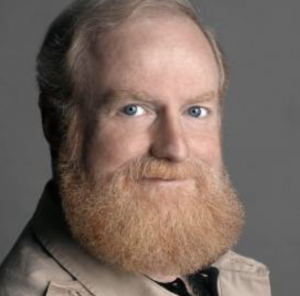
Prior to starting Applied Minds Inc., with partner Danny Hillis, he was President of Research & Development and Creative Technology for Walt Disney. His design career has included special visual effects, lighting and sound design for many Hollywood films, Broadway shows, Theme Park attractions and Rock & Roll tours. He has also been lead designer for multiple exhibitions, special purpose vehicles (one displayed at the Museum of Modern Art in NY), consumer products, and several major architectural and interior design projects.
Rajit Gadh (2018-19)
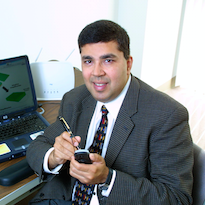 Dr. Rajit Gadh is a Professor at the Henry Samueli School of Engineering and Applied Science at UCLA, and the Founding Director of the *UCLA Smart Grid Energy Research Center* or *SMERC*. He is also Founder and Director of the *Wireless Internet for Mobile Enterprise Consortium* or *WINMEC*.
Dr. Rajit Gadh is a Professor at the Henry Samueli School of Engineering and Applied Science at UCLA, and the Founding Director of the *UCLA Smart Grid Energy Research Center* or *SMERC*. He is also Founder and Director of the *Wireless Internet for Mobile Enterprise Consortium* or *WINMEC*.
Dr. Gadh’s research interests include Smart Grid Architectures, Smart wireless communications, sense and control for Demand Response, Micro Grids and Electric Vehicle Integration into the Grid, Mobile Multimedia, Wireless and RFID Middleware, RFID and Wireless sensors for Tracking Assets, RF-sensor-control interfaces, and Visualization. He has over 150 papers in journals, conferences and technical magazines, and, 3 patents granted.
He has a Doctorate degree from Carnegie Mellon University (CMU), a Masters from Cornell University and a Bachelor’s degree from IIT Kanpur. He has taught as a visiting researcher at UC Berkeley, has been an Assistant, Associate and Full Professor at University of Wisconsin-Madison, and did his sabbatical as a visiting researcher at Stanford University for a year. He has won several awards from NSF (CAREER award, Research Initiation Award, NSF-Lucent Industry Ecology Award, GOAL-I award), SAE (Ralph Teetor award), IEEE (second best student-paper, WTS), ASME (Kodak Best Technical Paper award), AT&T (Industrial ecology fellow award), Engineering Education Foundation (Research Initiation Award), William Wong Fellowship award from University of Hong-Kong, etc., and other accolades in his career. He is on the Editorial board of ACM Computers in Entertainment Publication and the CAD Journal.
Tim Groeling (2023-24)
 Tim Groeling, professor of communication studies at UCLA, is an expert on political communications and new media. He has conducted research on partisan bias on network news shows, media coverage of the “rally-round-the-flag” phenomenon and foreign policy, and the newsworthiness of online political news. In his 2010 book, “When Politicians Attack: Party Discipline and the Media,” Groeling argued that if Democrats lost the congressional majority in 2010, it may help President Obama win re-election in 2012. He also is the co-author of the 2010 book of “War Stories: The Causes and Consequences of Public Views of War.”
Tim Groeling, professor of communication studies at UCLA, is an expert on political communications and new media. He has conducted research on partisan bias on network news shows, media coverage of the “rally-round-the-flag” phenomenon and foreign policy, and the newsworthiness of online political news. In his 2010 book, “When Politicians Attack: Party Discipline and the Media,” Groeling argued that if Democrats lost the congressional majority in 2010, it may help President Obama win re-election in 2012. He also is the co-author of the 2010 book of “War Stories: The Causes and Consequences of Public Views of War.”
Venky Harinarayan (2016-24)
 Venky Harinarayan is an entrepreneur and investor. He is also a founding partner at Milliways Ventures, an early stage venture capital firm.
Venky Harinarayan is an entrepreneur and investor. He is also a founding partner at Milliways Ventures, an early stage venture capital firm.
He was a founder of Junglee — a pioneering shopping search engine that was acquired by Amazon.com, a founder of Kosmix — an innovative search and categorization company that was acquired by Walmart Stores, Inc., and a founding investor in Efficient Frontier — a leading search and social media marketing company that was acquired by Adobe. Together, these start-ups were valued at $1 billion at the time of their acquisition.
Venky has also played the role of entrepreneur in two of the most successful retailers of our times — Walmart and Amazon.com. Most recently, at Walmart, Venky created and was head of @WalmartLabs, the innovation arm for the world’s largest company. At Amazon.com, Venky helped create the Marketplace business, that today accounts for around 40% of all the units sold. He also invented the concept underlying Amazon’s Mechanical Turk.
Venky is also an active investor. He created Cambrian Ventures, an early stage venture capital firm in 2000 whose investments include Neoteris (Juniper), Aster Data (Teradata), and Yousendit. Venky was one of the earliest investors in Facebook, investing in 2005. Other angel investments include Lyft and TutorVista (Pearson).
Venky was named to the “100 Most Creative People in Business” by FastCompany in 2012 and to the “Venture Capital 100” by AlwaysOn in 2012 and is a recipient of the Distinguished Alumni Award from IIT Madras. Venky earned his bachelor’s degree from IIT Madras; master’s from UCLA and PhD from Stanford University, all in computer science.
Eric Haseltine (2016-2018)
 Haseltine spent 13 years at Hughes Aircraft, where he rose to the position of Director of Engineering. He then left for Walt Disney Imagineering in 1992, where he joined the research and development group, working on large-scale virtual-reality projects. In 1998 he was promoted to senior vice president responsible for all technology projects. In 2000, he was made Executive Vice President. Haseltine was head of research and development for all of Walt Disney Imagineering by the time he left in 2002 to join the National Security Agency as Director of Research. From 2005 to 2007, Haseltine was Associate Director for Science and Technology, Office of the Director of National Intelligence (ODNI)—that organization’s first—a position he described in a 2006 US News and World Report interview, as follows, “You can think of me as the CTO [chief technology officer] of the intelligence community”.
Haseltine spent 13 years at Hughes Aircraft, where he rose to the position of Director of Engineering. He then left for Walt Disney Imagineering in 1992, where he joined the research and development group, working on large-scale virtual-reality projects. In 1998 he was promoted to senior vice president responsible for all technology projects. In 2000, he was made Executive Vice President. Haseltine was head of research and development for all of Walt Disney Imagineering by the time he left in 2002 to join the National Security Agency as Director of Research. From 2005 to 2007, Haseltine was Associate Director for Science and Technology, Office of the Director of National Intelligence (ODNI)—that organization’s first—a position he described in a 2006 US News and World Report interview, as follows, “You can think of me as the CTO [chief technology officer] of the intelligence community”.
Haseltine is currently president, and managing partner of Haseltine Partners, LLC. He also serves on the advisory board of TTI/Vanguard. [Source: Wikipedia]
Krisztina ‘Z’ Holly (2017-18)
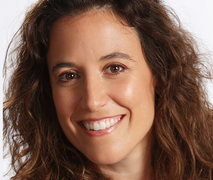 Krisztina Holly, known by colleagues as Z, is an entrepreneur, engineer, and innovation expert. In 2009 she created the first ever TEDx event, TEDxUSC, which so far has inspired over 6,000 similar events globally. Z most recently served as vice provost for innovation at USC and was founding executive director for two university centers for innovation, the MIT Deshpande Center for Technological Innovation and the USC Stevens Center for Innovation. These initiatives expanded the innovation ecosystems in Boston and LA and helped spin out 39 startups based on groundbreaking university technologies.
Krisztina Holly, known by colleagues as Z, is an entrepreneur, engineer, and innovation expert. In 2009 she created the first ever TEDx event, TEDxUSC, which so far has inspired over 6,000 similar events globally. Z most recently served as vice provost for innovation at USC and was founding executive director for two university centers for innovation, the MIT Deshpande Center for Technological Innovation and the USC Stevens Center for Innovation. These initiatives expanded the innovation ecosystems in Boston and LA and helped spin out 39 startups based on groundbreaking university technologies.
Between startups she spent nearly three years in documentary production for clients such as the Smithsonian, Harvard Business School Publishing, and the National Science Foundation. Her first startup was computer telephony pioneer, Stylus Innovation, acquired by Artisoft in 1996. Named Champion of Free Enterprise by Forbes in 2010, she is currently an advisor to the Obama administration and the World Economic Forum. Her work has appeared in BusinessWeek, The Huffington Post, CNN.com, Forbes, Strategy+Business, Science Progress, BigThink.com, and Mountain Bike magazine. She earned her master’s and bachelor’s degrees from MIT. Z is an adventure traveler, skydiver, backcountry/telemark skier, shark diver, mountain biker, and authentic food aficionado.
Leonard Kleinrock (2016-22)

Professor Leonard Kleinrock is Distinguished Professor of Computer Science at UCLA. He laid out the mathematical theory of packet networks, the technology underpinning the Internet as an MIT graduate student in 1962. His UCLA Host computer became the first node of the Arpanet (the network that served as the foundation for the Internet) in September 1969 from which he directed the transmission of the first network message. Kleinrock received the 2007 National Medal of Science, the highest honor for achievement in science bestowed by the President of the United States.
Leonard Kleinrock received his Ph.D. from MIT in 1963. He has served as Professor of Computer Science at UCLA since then, serving as department Chairman from 1991-1995. He received a BEE degree from CCNY in 1957 and an MS degree from MIT in 1959. He has published over 250 papers and authored six books in areas including packet switching networks, packet radio networks, local area networks, broadband networks, nomadic computing, performance evaluation, intelligent agents and peer-to-peer networks. He has supervised the research for 48 Ph.D. students.
Dr. Kleinrock is a member of the National Academy of Engineering, the American Academy of Arts and Sciences, is an IEEEfellow, an ACM fellow, an INFORMS fellow, an IEC fellow, an inaugural member of the Internet Hall of Fame, a Guggenheimfellow, and a founding member of the Computer Science and Telecommunications Board of the National Research Council.
Ellen Levy (2016-17)
 Ellen is Managing Director of Silicon Valley Connect, working with organizations and entrepreneurs on opportunities for “networked innovation.” Additionally, she actively manages a portfolio of over 40 startups either as an angel investor or advisory board member, and serves on the Board of Directors of Instructure (INST). Ellen spent the better part of a decade working with LinkedIn, including having served as Vice President of Strategic Initiatives, head of Corporate & Business Development and member of the Executive Team, and her original role as Advisory Board member when the company was first founded.
Ellen is Managing Director of Silicon Valley Connect, working with organizations and entrepreneurs on opportunities for “networked innovation.” Additionally, she actively manages a portfolio of over 40 startups either as an angel investor or advisory board member, and serves on the Board of Directors of Instructure (INST). Ellen spent the better part of a decade working with LinkedIn, including having served as Vice President of Strategic Initiatives, head of Corporate & Business Development and member of the Executive Team, and her original role as Advisory Board member when the company was first founded.
Over her career, Ellen has held formal roles in venture capital (Softbank Venture Capital; NeoCarta Ventures; Draper Fisher Jurvetson), startups (WhoWhere, sold to Lycos; Softbook Press, sold to Gemstar; LinkedIn, LNKD), technology think tanks (Interval Research), large corporations (Apple Computer, AAPL; PriceWaterhouse Coopers), and universities (Harvard University; Stanford University).
Referred to as the “Most Connected Woman in Silicon Valley,” Ellen now focuses a good deal of her time on topics generally associated with dynamic, rapidly-growing startups; on a category she calls “social productivity” tools and services; on aspects of social networks within “the enterprise”; and on what it takes to build, foster and leverage innovation ecosystems and supporting organizational models.
She has a BA from the University of Michigan, and MA/PhD in Cognitive Psychology from Stanford University.
Lauren McCarthy (2018-2019)
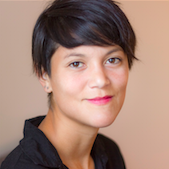 Lauren McCarthy is an artist based in Los Angeles whose work explores social and technological systems for being a person and interacting with other people. She makes software, performances, videos, and other things on the internet. She is the creator of p5.js, an open source software platform for creating interactive sketches using HTML and JavaScript. She is an Assistant Professor at UCLA Design Media Arts. She is a Sundance Institute Fellow and was previously a resident at CMU STUDIO for Creative Inquiry, Eyebeam, Autodesk, NYU ITP, and Ars Electronica / QUT TRANSMIT³.
Lauren McCarthy is an artist based in Los Angeles whose work explores social and technological systems for being a person and interacting with other people. She makes software, performances, videos, and other things on the internet. She is the creator of p5.js, an open source software platform for creating interactive sketches using HTML and JavaScript. She is an Assistant Professor at UCLA Design Media Arts. She is a Sundance Institute Fellow and was previously a resident at CMU STUDIO for Creative Inquiry, Eyebeam, Autodesk, NYU ITP, and Ars Electronica / QUT TRANSMIT³.
Jayathi Murthy (2016-22)
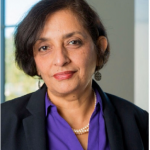 Jayathi Murthy is Dean of the Henry Samueli School of Engineering and Applied Science at the University of California, Los Angeles. Previously she served as Ernest Cockrell Jr. Department Chair and Professor of Mechanical Engineering at The University of Texas at Austin. She also served as Director of PRISM: NNSA Center for Prediction of Reliability, Integrity and Survivability of Microsystems during 2008-2014. She received her Ph.D degree from the University of Minnesota in the area of numerical heat transfer and has worked in both academia and in industry. During her employment at Fluent Inc., a leading vendor of CFD software, she developed the unstructured solution-adaptive finite volume methods underlying their flagship software Fluent, and the electronics cooling software package ICEPAK. More recently, her research has addressed sub-micron thermal transport, multiscale multiphysics simulations of MEMS and NEMS and uncertainty quantification in these systems. She is the recipient of the IBM Faculty Partnership award 2003-2005, numerous best paper awards, the 2009 ASME EPPD Woman Engineer of the Year Award and the 2012 ASME EPPD Clock Award. In 2012, she was named a distinguished alumna of IIT Kanpur, India. Prof. Murthy serves on the editorial boards of Numerical Heat Transfer and International Journal of Thermal Sciences and is an editor of the 2 nd edition of the Handbook of Numerical Heat Transfer. She has served on numerous national committees and panels on electronics thermal management and CFD, and is the author of over 280 technical publications.
Jayathi Murthy is Dean of the Henry Samueli School of Engineering and Applied Science at the University of California, Los Angeles. Previously she served as Ernest Cockrell Jr. Department Chair and Professor of Mechanical Engineering at The University of Texas at Austin. She also served as Director of PRISM: NNSA Center for Prediction of Reliability, Integrity and Survivability of Microsystems during 2008-2014. She received her Ph.D degree from the University of Minnesota in the area of numerical heat transfer and has worked in both academia and in industry. During her employment at Fluent Inc., a leading vendor of CFD software, she developed the unstructured solution-adaptive finite volume methods underlying their flagship software Fluent, and the electronics cooling software package ICEPAK. More recently, her research has addressed sub-micron thermal transport, multiscale multiphysics simulations of MEMS and NEMS and uncertainty quantification in these systems. She is the recipient of the IBM Faculty Partnership award 2003-2005, numerous best paper awards, the 2009 ASME EPPD Woman Engineer of the Year Award and the 2012 ASME EPPD Clock Award. In 2012, she was named a distinguished alumna of IIT Kanpur, India. Prof. Murthy serves on the editorial boards of Numerical Heat Transfer and International Journal of Thermal Sciences and is an editor of the 2 nd edition of the Handbook of Numerical Heat Transfer. She has served on numerous national committees and panels on electronics thermal management and CFD, and is the author of over 280 technical publications.
Carey Nachenberg (2023-24)
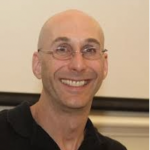 Carey Nachenberg designs and builds self-driving vehicles at Lyft Level 5, Lyft’s autonomous vehicle division. Prior to his work at Lyft, Carey spent twenty eight years building cyber-security products for Google and Symantec. Carey was named to Computerworld magazine’s “40 Under 40 – 40 Innovative IT People to Watch”, and awarded the The Wall Street Journal’s 2010 Technology Innovation Award for his innovations in the security field. Nachenberg holds a Master’s degree in Computer Science from UCLA, where he continues to serve as an Adjunct Professor. In his free time, he enjoys rock climbing at the local crags with students and friends.
Carey Nachenberg designs and builds self-driving vehicles at Lyft Level 5, Lyft’s autonomous vehicle division. Prior to his work at Lyft, Carey spent twenty eight years building cyber-security products for Google and Symantec. Carey was named to Computerworld magazine’s “40 Under 40 – 40 Innovative IT People to Watch”, and awarded the The Wall Street Journal’s 2010 Technology Innovation Award for his innovations in the security field. Nachenberg holds a Master’s degree in Computer Science from UCLA, where he continues to serve as an Adjunct Professor. In his free time, he enjoys rock climbing at the local crags with students and friends.
Safiya Noble (2016-17)
 Safiya Noble is the Assistant Professor in the Department of Information Studies in the Graduate School of Education and Information Studies at UCLA. She conducts research in socio-cultural informatics; including feminist, historical and political-economic perspectives on computing platforms and software in the public interest. Her research is at the intersection of culture and technology in the design and use of applications on the Internet. She holds appointments in the departments of African American Studies, Gender Studies, and Education.
Safiya Noble is the Assistant Professor in the Department of Information Studies in the Graduate School of Education and Information Studies at UCLA. She conducts research in socio-cultural informatics; including feminist, historical and political-economic perspectives on computing platforms and software in the public interest. Her research is at the intersection of culture and technology in the design and use of applications on the Internet. She holds appointments in the departments of African American Studies, Gender Studies, and Education.
Ninez Ponce (2017-20)
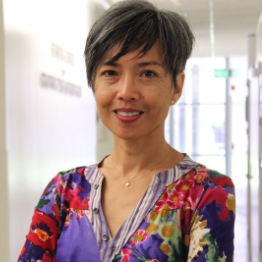
Ninez A. Ponce, PhD, MPP, an expert on immigrant and global health, survey-based research, social determinants of health, and health disparities and who helped develop the first California Health Interview Survey (CHIS) in 2001, is an associate center director at the UCLA Center for Health Policy Research and the principal investigator of CHIS. She is also the director of the UCLA Center for Global and Immigrant Health
She is a professor in the UCLA Fielding School of Public Health’s Department of Health Policy and Management and associate director of UCLA’s Asian American Studies Center.
Her research has received major support from the National Institute of Aging, National Cancer Institute, Robert Wood Johnson Foundation and other organizations. Dr. Ponce has served as RAND’s resident advisor to the Republic of Macedonia’s Ministry of Health and has worked for the World Bank and Catholic Relief Services in Thailand.
She was deputy director of the Asian and Pacific Islander American Health Forum, a national advocacy organization promoting the health of Asian, Native Hawaiian and Pacific Islander communities in the U.S. and US territories. She has also served as a consultant with many community-based organizations including Oakland’s La Clinica de la Raza and Asian Health Services. She was also deputy director of the San Francisco-based Asian and Pacific Islander American Health Forum.
Ponce received a bachelor’s degree in science from UC Berkeley, a master’s in public policy from Harvard University, and a PhD in health services from UCLA.
Maggi Phillips (2023-24)
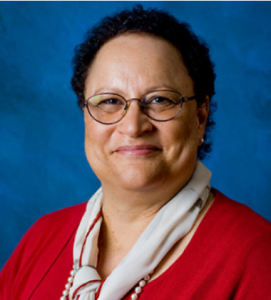 Margaret Elizabeth Phillips is retired from the Graziadio School of Business and Management, Pepperdine University, which she continues to serve as a professor emerita. Dr. Phillips has special interests in cultural influences on behavior in and out of organizations, management development in multicultural contexts, the application of multiple theoretical perspectives to organization diagnosis and design, and qualitative research methods. Her teaching, research, and consulting are conducted primarily in the U.S., the Caribbean and Latin America, and Europe. Dr. Phillips currently serves on the Board of Directors of several organizations, for-profit and not-for-profit, with culturally diverse stakeholders, and is a member of the Sustainable Business Council of Los Angeles. Previously, she worked with multi-institutional consortia in California and New York, within the federal government, in line and staff positions in various public-sector organizations.
Margaret Elizabeth Phillips is retired from the Graziadio School of Business and Management, Pepperdine University, which she continues to serve as a professor emerita. Dr. Phillips has special interests in cultural influences on behavior in and out of organizations, management development in multicultural contexts, the application of multiple theoretical perspectives to organization diagnosis and design, and qualitative research methods. Her teaching, research, and consulting are conducted primarily in the U.S., the Caribbean and Latin America, and Europe. Dr. Phillips currently serves on the Board of Directors of several organizations, for-profit and not-for-profit, with culturally diverse stakeholders, and is a member of the Sustainable Business Council of Los Angeles. Previously, she worked with multi-institutional consortia in California and New York, within the federal government, in line and staff positions in various public-sector organizations.
Miriam Posner (2018-20)
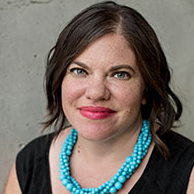 Miriam Posner is an assistant professor at the UCLA School of Information. She’s also a digital humanist with interests in labor, race, feminism, and the history and philosophy of data. As a digital humanist, she is particularly interested in the visualization of large bodies of data from cultural heritage institutions, and the application of digital methods to the analysis of images and video. A film, media, and American studies scholar by training, she frequently writes on the application of digital methods to the humanities. She is at work on two projects: the first on what “data” might mean for humanistic research; and the second on how multinational corporations are making use of data in their supply chains.
Miriam Posner is an assistant professor at the UCLA School of Information. She’s also a digital humanist with interests in labor, race, feminism, and the history and philosophy of data. As a digital humanist, she is particularly interested in the visualization of large bodies of data from cultural heritage institutions, and the application of digital methods to the analysis of images and video. A film, media, and American studies scholar by training, she frequently writes on the application of digital methods to the humanities. She is at work on two projects: the first on what “data” might mean for humanistic research; and the second on how multinational corporations are making use of data in their supply chains.
Peter Reiher (2019-20)

Peter Reiher is an Adjunct Professor in the Computer Science Department at UCLA. He received his Ph.D. from UCLA in 1987. After spending five years working at JPL, he returned to UCLA in 1992. He has led research projects on many topics in computer security, operating systems and file systems, ubiquitous computing, and computer networks. He also teaches classes at UCLA on these subjects. He is co-author of the first book on distributed denial of service attacks.
Sarah T. Roberts (2018-20)
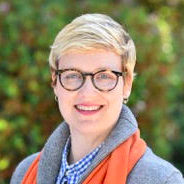 Sarah T. Roberts is an Assistant Professor in the Department of Information Studies (Graduate School of Education & Information Studies) at UCLA. She holds a Ph.D. from the iSchool at the University of Illinois at Urbana-Champaign. Prior to joining UCLA, she was an Assistant Professor in the Faculty of Information and Media Studies at Western University in London, Ontario. On the internet since 1993, she was previously an information technology professional for 15 years, and, as such, her research interests focus on information work and workers. She studies the large-scale, industrial and for-pay practice of social media UGC adjudication called “Commercial Content Moderation,” a term she coined, and is frequently consulted by the press (The Guardian; The Washington Post; Le Monde, e.g.) and others on issues related to social media, society and culture. Dr. Roberts was recently elected to the board of IEEE Annals of the History of Computing. Her book on commercial content moderators is forthcoming from Yale University Press.
Sarah T. Roberts is an Assistant Professor in the Department of Information Studies (Graduate School of Education & Information Studies) at UCLA. She holds a Ph.D. from the iSchool at the University of Illinois at Urbana-Champaign. Prior to joining UCLA, she was an Assistant Professor in the Faculty of Information and Media Studies at Western University in London, Ontario. On the internet since 1993, she was previously an information technology professional for 15 years, and, as such, her research interests focus on information work and workers. She studies the large-scale, industrial and for-pay practice of social media UGC adjudication called “Commercial Content Moderation,” a term she coined, and is frequently consulted by the press (The Guardian; The Washington Post; Le Monde, e.g.) and others on issues related to social media, society and culture. Dr. Roberts was recently elected to the board of IEEE Annals of the History of Computing. Her book on commercial content moderators is forthcoming from Yale University Press.
Amit Sahai (2016-22)

Professor Amit Sahai received his Ph.D. in Computer Science from MIT in 2000. From 2000 to 2004, he was on the faculty at Princeton University; in 2004 he joined UCLA, where he currently holds the position of Professor of Computer Science. His research interests are in security and cryptography, and theoretical computer science more broadly. He is the co-inventor of Attribute-Based Encryption, Functional Encryption, and Indistinguishability Obfuscation. He has published more than 100 original technical research papers at venues such as the ACM Symposium on Theory of Computing (STOC), CRYPTO, and the Journal of the ACM. He has given a number of invited talks at institutions such as MIT, Stanford, and Berkeley, including the 2004 Distinguished Cryptographer Lecture Series at NTT Labs, Japan. Professor Sahai is the recipient of numerous honors; he was named an Alfred P. Sloan Foundation Research Fellow in 2002, received an Okawa Research Grant Award in 2007, a Xerox Foundation Faculty Award in 2010, a Google Faculty Research Award in 2010, and a 2012 Pazy Memorial Award. He was awarded the 2016 Lockheed Martin Excellence in Teaching Award. His research has been covered by several news agencies including the BBC World Service, Quanta Magazine, Wired, and IEEE Spectrum.
Michael Silton (2016-20)
 Managing Director at Act One Ventures, an early stage UCLA-focused technology and life sciences fund to help invest impact capital coming out of the UCLA ecosystem. In addition to the capital, we support portfolio companies with top tier Advisors of UCLA staff / alums. Formerly the exec chair at the UCLA VC Fund. Michael has been an entrepreneur himself, having founded and run both private and public companies in the last three decades. Most recently, Michael was CEO/Founder of B2B SaaS company Rainmaker Systems, which he took public on NASDAQ. Michael previously co-founded UniDirect, a pioneer in electronic software licensing and distribution.
Managing Director at Act One Ventures, an early stage UCLA-focused technology and life sciences fund to help invest impact capital coming out of the UCLA ecosystem. In addition to the capital, we support portfolio companies with top tier Advisors of UCLA staff / alums. Formerly the exec chair at the UCLA VC Fund. Michael has been an entrepreneur himself, having founded and run both private and public companies in the last three decades. Most recently, Michael was CEO/Founder of B2B SaaS company Rainmaker Systems, which he took public on NASDAQ. Michael previously co-founded UniDirect, a pioneer in electronic software licensing and distribution.
John Silvester (2016-17)
 John Silvester was born in the UK and came to the US to pursue his graduate studies. He received an MA in Mathematics and Operations Research from Cambridge University, an MS in Statistics and Computer Science from West Virginia University and a Ph.D. in Computer Science from UCLA. His academic interests are in high speed, optical, and wireless networking. He has supervised more than 25 Ph.D. students and published over 150 technical papers and is currently a Professor of Electrical (Computer) Engineering at the University of Southern California where he has also served as Vice-Provost of Academic Computing and President of the Faculty (Senate). For the last 20 years, he has been actively involved in planning, management and implementation of advanced networking for the research and education community at the state, national, and international level. He has been very involved in R&E network infrastructure development and was a founding member of CENIC (Corporation forEducation Network Initiatives in California) and served as Chair of the CENIC Board for 7 years. He continues to be active in International R&E network infrastructure development, participating in and leading several NSF projects ins this area.
John Silvester was born in the UK and came to the US to pursue his graduate studies. He received an MA in Mathematics and Operations Research from Cambridge University, an MS in Statistics and Computer Science from West Virginia University and a Ph.D. in Computer Science from UCLA. His academic interests are in high speed, optical, and wireless networking. He has supervised more than 25 Ph.D. students and published over 150 technical papers and is currently a Professor of Electrical (Computer) Engineering at the University of Southern California where he has also served as Vice-Provost of Academic Computing and President of the Faculty (Senate). For the last 20 years, he has been actively involved in planning, management and implementation of advanced networking for the research and education community at the state, national, and international level. He has been very involved in R&E network infrastructure development and was a founding member of CENIC (Corporation forEducation Network Initiatives in California) and served as Chair of the CENIC Board for 7 years. He continues to be active in International R&E network infrastructure development, participating in and leading several NSF projects ins this area.
John Villasenor (2023-24)
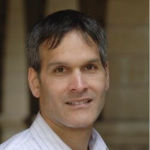 John Villasenor is a nonresident senior fellow in Governance Studies and the Center for Technology Innovation at Brookings. He is also a professor of electrical engineering, law, public policy, and management at UCLA, as well as co-director of the UCLA Institute for Technology, Law, and Policy. Villasenor’s work considers the technology, policy, and legal issues arising from key technology trends including the growth of artificial intelligence, the increasing complexity and interdependence of today’s networks and systems, and continued advances in computing and communications.
John Villasenor is a nonresident senior fellow in Governance Studies and the Center for Technology Innovation at Brookings. He is also a professor of electrical engineering, law, public policy, and management at UCLA, as well as co-director of the UCLA Institute for Technology, Law, and Policy. Villasenor’s work considers the technology, policy, and legal issues arising from key technology trends including the growth of artificial intelligence, the increasing complexity and interdependence of today’s networks and systems, and continued advances in computing and communications.
